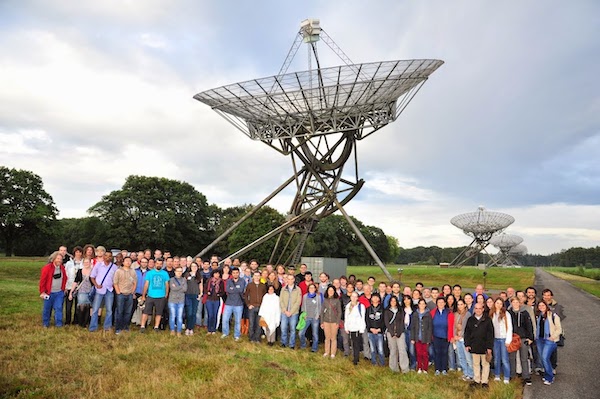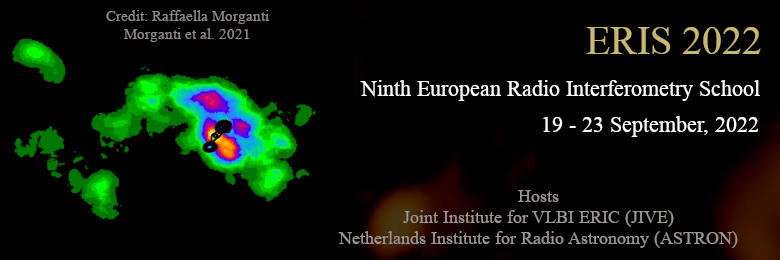
ERIS 2022
by John Mckean (ASTRON, the Netherlands)

This September sees the return of the European Radio Interferometry School (ERIS), which is the flagship training activity for new users within the RadioNet community. ERIS aims to provide a foundation course in the theory of radio interferometry at m to mm-wavelengths, while also giving advanced lectures on the techniques associated with our RadioNet facilities (ALMA, e-MERLIN, EVN, LOFAR and NOEMA). A key component of the school is the hands-on practical tutorials that give the students direct experience in the reduction and the analysis of interferometric data. The school will be organised by JIVE and ASTRON in Dwingeloo (the Netherlands), and is held from 19 to 23 September 2022.
ERIS 2022 is the 9th edition of the school, which was first held in Manchester (UK) in 2005, and has so far trained over five hundred budding radio astronomers the skills they need to analyse the data for their research projects. Over the last (almost) two decades, ERIS has evolved from a mainly EVN-centric school to include all of the major astronomical facilities within Europe (and beyond). This has seen the change from relatively simple datasets, to complex wide-band observations over a large parameter-space of angular resolution and sensitivity. In addition, the school has seen the evolution in data analysis techniques and has now fully moved from AIPS to CASA-based data reduction. The continuing evolution of ERIS has made it one of the premier interferometric schools world-wide and is now typically attended by over 100 participants every two years. Finally, ERIS has also provided an important stage for training the next generation of teachers and tutors that pass on their experience and knowledge to the school attendees.
The latest edition will be the first of two schools to be organised as part of the Opticon-RadioNet Pilot (ORP) project, where we expect to also welcome many colleagues from the optical and infrared astronomical community. It will also be held in-person so that the attendees can directly interact with their peers, and discuss their particular data-analysis needs with the tutors.
The registration is now open, and further details can be found at the ERIS 2022 website.
